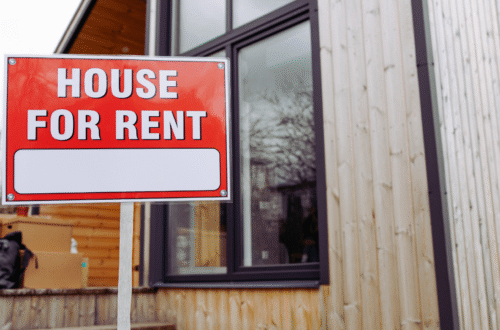
Getting The Most of Your Home Rental
Managing the Property
Managing a property is a multifaceted responsibility that holds paramount importance for property owners seeking to optimize their real estate investments. Property management involves a range of tasks, from tenant relations to maintenance, that collectively contribute to the overall success and longevity of a property. Property management companies play a pivotal role in alleviating the burden on property owners by efficiently handling these complex and time-consuming aspects.
First and foremost, effective property management is crucial for maintaining positive tenant relations. Property managers are skilled in attracting reliable tenants through rigorous screening processes, managing lease agreements, and promptly addressing tenant inquiries and concerns. This not only fosters a positive living experience for tenants but also ensures consistent rental income for property owners.
Likewise, a dublin property management company or its counterparts in a different location can be instrumental in preserving the physical condition of the property. They oversee routine maintenance tasks and coordinate repairs, preventing minor issues from escalating and safeguarding the property’s long-term value. This proactive approach not only enhances the property’s appeal to current and prospective tenants but also minimizes the risk of major and costly repairs.
Moreover, property managers play a key role in navigating the legal landscape governing rental properties. Staying informed about local and state regulations, they assist property owners in adhering to legal requirements, thereby minimizing legal risks and ensuring compliance with tenant rights and housing laws.
Beyond these operational aspects, property management companies contribute to the financial success of real estate investments. They conduct market analyses to set competitive rental prices, employ effective marketing strategies to attract tenants promptly and handle financial management tasks such as budgeting and accounting. This comprehensive approach allows property owners to maximize their returns while minimizing the stress associated with day-to-day property management.
It’s also important to remember that property management costs typically include a range of expenses, such as property maintenance, insurance, property taxes, marketing, and management fees. Landlords must factor in routine maintenance and unforeseen repairs, as well as administrative tasks such as tenant screenings and lease preparations. Additionally, property management companies may charge a percentage of the rental income as a management fee. For this reason, it’s a good idea for landlords to use services that provide a Property Management Cost Calculator in Los Angeles (or elsewhere) so that they can carefully assess all these factors and create a comprehensive budget to ensure that property management costs do not exceed the potential rental income.
In essence, property management is essential for creating a seamless and profitable real estate investment. Property management companies bring expertise, efficiency, and a comprehensive suite of services that collectively contribute to the success and longevity of a property, allowing property owners to focus on broader aspects of their lives or portfolio management.
Pricing Models & Strategies
There are a few different ways that you can go about pricing your home for rent. The most important thing is to make sure that you are covering all of your costs and then some so that you are actually making a profit.
One option is to charge by night. This is a popular option for those who are renting out their home on a short-term basis, such as vacationers. You will need to research what similar properties in your area are going for per night in order to come up with a competitive price.
Another option is to charge by the week. This can be a good option if you have a bit more flexibility in your rental schedule. Again, do your research to see what others are charging in your area for comparable properties.
If you plan on renting out your home long-term, then you may want to consider charging by the month. In this case, it is even more important to ensure that you are priced competitively, as there will likely be more options for tenants looking for monthly rentals.
Whichever pricing model you choose, make sure that you are clear about all associated costs upfront, so there are no surprises for either you or your tenant later on.
Marketing & Promotion Tips
Assuming you’ve already decided to take the plunge and list your home on a rental site like Airbnb, here are a few tips to help you market and promote your listing so that it stands out from the rest and attracts guests:
- Start with great photos – First impressions matter, so make sure your listing looks its best by hiring a professional photographer or taking high-quality photos yourself. Include shots of both the inside and outside of your home, as well as any special features or amenities that you offer.
- Write an engaging description – In addition to photos, your rental listing should also have an interesting and informative description that highlights what makes your home unique. Be sure to mention any nearby attractions, landmarks, or public transit options so that potential guests can get a sense of what they can expect in terms of location.
- Set a competitive price – Take some time to research comparable listings in your area so that you can price yours competitively. You don’t want to undercharge and leave money on the table, but you also don’t want to price yourself out of the market by overcharging.
- Offer discounts for longer stays – One way to entice guests to choose your listing over others is by offering discounts for those who book for longer stays (e.g., 10% off for stays of 7 nights or more).
If you don’t have the budget for professional photography or struggle with writing compelling descriptions, you can get in touch with a rental management company in Toronto, ON, or elsewhere, that specializes in creating visually appealing listings optimized to attract reliable tenants. Investing in these services can pay dividends through improved occupancy rates and rental income over time.
Choosing The Right Tenants
If you’re thinking about renting out your home to make some extra money, there are a few things you need to keep in mind. First, you need to make sure you choose the right tenants. Here are a few tips for choosing the right tenants:
- Do a background check.
This is undeniably one of the pivotal stages in selecting the right tenants for your property. Ensuring that prospective tenants have a clean criminal history is essential to maintain a safe and peaceful living environment. Tracing agents available at Bond Rees and similar companies can play a crucial role in this process by conducting comprehensive criminal background checks. The professionals can access various databases to uncover any criminal convictions or pending charges, helping you make informed decisions. - Make sure they have a steady income. Evaluating a tenant’s financial capability is a critical step in the tenant selection process. It’s pivotal to avoid the scenario where tenants struggle to meet their rent obligations, which can lead to financial strain for landlords and potential eviction hassles. By conducting thorough financial assessments, landlords can make informed decisions and minimize the risk of leasing to individuals who may default on rent payments. This due diligence not only safeguards the landlord’s income stream but also contributes to a more stable and harmonious landlord-tenant relationship. Ultimately, ensuring that tenants can comfortably afford rent is a cornerstone of responsible property management and successful tenancy.
- Get references from previous landlords. Requesting references from a prospective tenant’s previous landlords is a fundamental step in the tenant screening process. These references provide invaluable insights into the tenant’s rental history, reliability, and behavior as a lessee. By contacting former landlords, current property owners can gain a comprehensive understanding of how the tenant maintained their previous rental units, paid rent promptly, and interacted with neighbors. These firsthand accounts enable landlords to make informed decisions about whether the tenant is likely to be a responsible, respectful, and cooperative occupant. It’s a crucial element in ensuring that the property remains well-maintained, rent is paid on time, and the landlord-tenant relationship remains harmonious.
- Meet them in person before you make a decision. Meeting prospective tenants in person is a pivotal step in the tenant selection process. It allows landlords to assess not only their qualifications on paper but also their demeanor, communication skills, and overall suitability for the rental property. In a face-to-face meeting, landlords can gauge the tenant’s professionalism, discuss expectations, and address any concerns or questions. This interaction fosters a more comprehensive understanding of the tenant’s personality and whether they are likely to be a responsible and considerate occupant. Additionally, it provides an opportunity for both parties to clarify rental terms, building a foundation for a transparent and productive landlord-tenant relationship, and contributing to a more successful and harmonious tenancy.
By following these tips, you can be sure that you’ll choose the right tenants for your home and avoid any problems down the road.
Common Problems & Solutions
If you’re looking to make some extra money by renting out your home, you’re not alone. In fact, it’s a great way to bring in some extra income, whether you’re renting out a spare room, an entire apartment, or even your whole house.
However, there are a few things to keep in mind before you get started, as well as some common problems that can occur during the rental process. Here’s a quick guide to help you get started and avoid any potential pitfalls.
Before you begin renting out your home, the essential step is to ensure it meets all the necessary rules and follows local laws. This means having functional smoke detectors, carbon monoxide detectors, and the right insurance coverage in case of accidents or damage during your tenants’ stay. To handle this, you can have your property inspected by a company like No Letting Go, which can ensure that these safety measures are in order.
Once you’ve got all of that sorted out, it’s time to start marketing your rental. The best way to do this is through online listings on sites like Airbnb or VRBO. Make sure to include plenty of photos and detailed information about your rental so potential tenants can easily find what they’re looking for.
It’s also important to set clear expectations from the beginning – be upfront about what amenities are included, what rules tenants need to follow, and what the check-in/check-out process will be like. This will help avoid any misunderstandings down the road.
Renting out your home can be a great way to make extra money, but it’s important that you do your research before taking the plunge. From understanding local regulations and finding reliable tenants to setting up an attractive rental listing, there are many things to consider when renting out your home for the first time. We hope this guide has given you insight into what is involved in becoming a landlord so that you can make an informed decision about whether or not this venture is right for you. Good luck!





